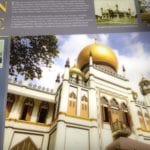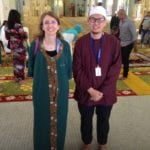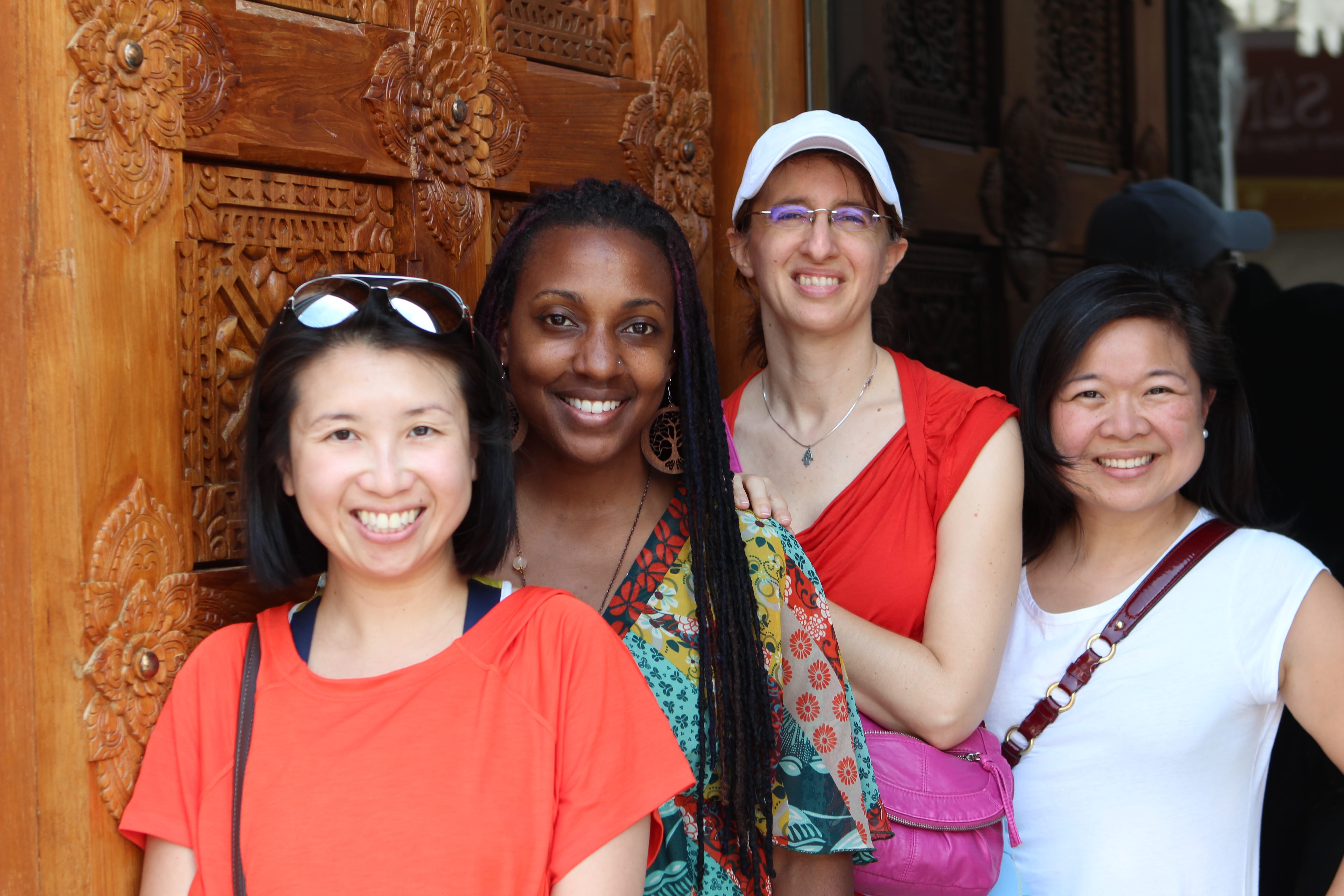Greetings Readers,
Last month I wrote about my overall impressions of my first day in Singapore, how the country captivated me from the moment we took the taxi out of the airport. This month I would like to capture a moment in time from the trip, a moment that reminded me how human connection is one of the most effective tools in breaking down bias and hate.
Throughout my time in Singapore, I had seen the diversity of the country visible on almost every corner. The people practice many religions, with Buddhism being the most common, followed by Christianity, Islam, Taoism, and Hinduism.
Across the street from our apartment was a neighborhood with shops, cafes, and the spectacular gold-topped Sultan Mosque. I had seen it in a few walks we had taken, but we were always headed somewhere and I didn’t have time to stop.
On one of our last days in Singapore, I took a solitary stroll to the mosque, and had one of the best experiences of my trip. When I arrived, I wasn’t sure I would be allowed to enter as a non-Muslim, but as I walked up the stairs and took off my shoes I was immediately greeted by two volunteers. They welcomed me kindly, gave me a garment to wear over my shoulders, and directed me inside.
I wandered around the peaceful prayer hall where adherents sat in silent contemplation. A couple of discussion groups were taking place on the perimeter of the carpeted hall, and visitors were welcome to participate. I ambled slowly, looking at the posters that explained some aspects of the religion. I learned that many Muslim women keep their name after marriage, and that any money that a woman earns in a marriage belongs to her alone.
As I was soaking in the atmosphere, a man came up behind me and said, “Hello, sister.”
His voice was so calm, so kind. As I turned around and saw his face, the peace that he radiated was unmistakable. He asked me if I had any questions and we began talking. I observed that he made sure never to stand too close to me or encroach on my space; I felt so comfortable and respected. His name was Adam and he had been born and raised in Singapore. We talked about how much our two faiths, Islam and Judaism, have in common in spite of the fighting around the world and heinous acts that people have committed in the name of religion.
He then told me a story I will never forget. A few years ago Adam had made a trip to Mecca, Islam’s holiest city (located in Saudi Arabia) and the birthplace of the faith itself. As he and his friend made their way toward the sacred mosque Masjid al-Haram, the crowds were teeming. Both Adam and his traveling companion wanted to get closer to the Kaaba, a building in the center of the mosque that is considered one of the most sacred sites in Islam.
Looking at the crowds between them and the Kaaba, however, the task of reaching it seemed impossible. Adam’s friend had a suggestion:
“We are just going to have to be a little pushy,” he said. “Just shove your way through. Don’t hurt anyone, but don’t be too gentle either. Otherwise we will never get there!”
But Adam remember something his teacher had taught him: Don’t do a bad deed to do a good deed.
He did not want to shove his way through the crowd. He said he prayed instead.
“If it is my destiny to be at the Kaaba, let me pass without hurting anyone.”
They then walked gently and easily to the area surrounding the structure, and although they did not make it all the way to the building itself, Adam said he was exactly where he was supposed to be. Hardly anyone had even brushed his clothing on the way in.
When it was time for me to leave we took a picture together and Adam sent me on my way with a “have a blessed day.”
That meaningful conversation and Adam’s peaceful demeanor stayed with me for a long time. I also wondered what the impact would be if more of these conversations happened between people who harbor hate or resentment toward another group of people, but have never even spent one day with those they fear.
If you have questions about how to bridge religious differences in the workplace, please contact us. Through solid research, data, and willingness to discuss the subject, it is possible to overcome these barriers.







